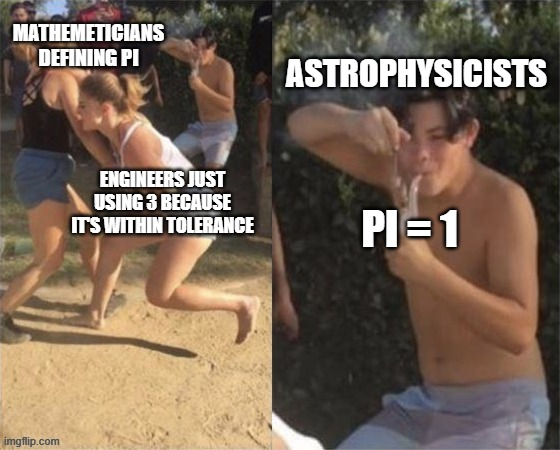this post was submitted on 17 Jun 2025
487 points (97.3% liked)
Science Memes
15322 readers
2535 users here now
Welcome to c/science_memes @ Mander.xyz!
A place for majestic STEMLORD peacocking, as well as memes about the realities of working in a lab.

Rules
- Don't throw mud. Behave like an intellectual and remember the human.
- Keep it rooted (on topic).
- No spam.
- Infographics welcome, get schooled.
This is a science community. We use the Dawkins definition of meme.
Research Committee
Other Mander Communities
Science and Research
Biology and Life Sciences
- [email protected]
- [email protected]
- [email protected]
- [email protected]
- [email protected]
- [email protected]
- [email protected]
- [email protected]
- [email protected]
- [email protected]
- [email protected]
- [email protected]
- [email protected]
- [email protected]
- [email protected]
- [email protected]
- [email protected]
- [email protected]
- [email protected]
- [email protected]
- [email protected]
- [email protected]
- [email protected]
- [email protected]
- !reptiles and [email protected]
Physical Sciences
- [email protected]
- [email protected]
- [email protected]
- [email protected]
- [email protected]
- [email protected]
- [email protected]
- [email protected]
- [email protected]
Humanities and Social Sciences
Practical and Applied Sciences
- !exercise-and [email protected]
- [email protected]
- !self [email protected]
- [email protected]
- [email protected]
- [email protected]
Memes
Miscellaneous
founded 2 years ago
MODERATORS
you are viewing a single comment's thread
view the rest of the comments
view the rest of the comments

What would be the "n" in that Big O notation, though?
If you're saying that you want accuracy out to n digits, then there are algorithms with specific complexities for calculating those. But that's still just an approximation, so those aren't any better than the real-world implementation method of simply looking up that constant rather than calculating it anew.
I guess n would be infinite in the limit I'm looking for. I'm looking at this in like a "musing about theoretical complexity" angle rather than actually needing to use or know how to use pi on modern systems.
For the record, I realize how incredibly pedantic I'm being about the difference between the irrational pi and rational approximations of pi that end up being actually useful. That being said, computational complexity has enough math formalism stink on it that pedantry seems encouraged